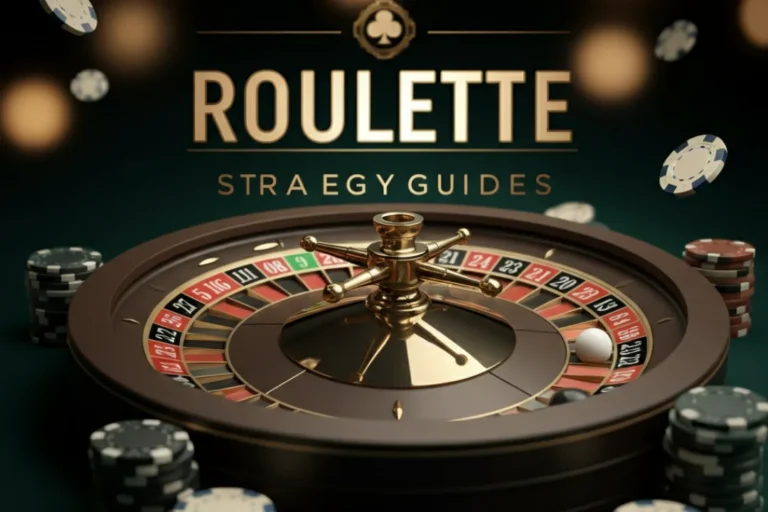Curious about how some players seem to have a plan every time they sit at the roulette table? While luck is always involved, using the right roulette strategies can completely change your approach and boost your confidence. This in-depth guide will break down popular betting systems, smart bankroll tips, and ways to enjoy the game with a sharper edge.
Understanding the Basics of Roulette
If you’re new to roulette, start by getting comfortable with how the game works. Essentially, you predict where a tiny ball will land after spinning around a wheel packed with numbered slots. To join in, you simply place your chips on your chosen numbers or groups of numbers.
The Roulette Wheel and Table Layout
Roulette comes in two main styles: European and American. The European wheel spins with 37 slots—numbers 1 through 36, plus a single zero—giving players better odds. American roulette adds an extra zero (double zero), increasing the house edge slightly. Whenever you can, go for the European version—your bankroll will thank you.
Types of Bets in Roulette
There’s more than one way to bet on roulette. Inside bets target individual numbers or small clusters for higher payouts; outside bets are broader, covering categories like red or black, odd or even. Inside wagers offer big wins with lower odds, while outside bets win more often but pay less.
Popular Progressive Roulette Strategies
Some popular roulette strategies involve shifting your bet size according to what happened in the last round. These progressive betting systems are famous for their risk and potential reward.
The Martingale System
One of the most talked-about betting systems is the Martingale. Here’s how it works: you keep doubling your bet any time you lose, planning that the next win will cover those losses—and then some. While this can work over a short stretch, it takes a big bankroll and there’s always the risk of hitting table maximums or running out of funds.
The D’Alembert System
If the Martingale feels a bit wild, the D’Alembert system might suit you better. Instead of doubling bets, you add one unit after each loss and subtract one after a win. It’s a slower, more conservative way to ride out losing streaks and avoid big swings—making it a favorite in many roulette strategy guides.
Non-Progressive Betting Approaches
Prefer a steadier path? Non-progressive roulette strategies keep your wagers the same each time. These systems are more about smart bet placement than aggressive chasing.
- James Bond Strategy: With this betting system, you commit 20 units per round—14 units on high numbers (19–36), 5 units on 13–18, and 1 unit on zero for a safety net. You cover most of the wheel, but you’ll still lose occasionally.
- Columns and Dozens Bets: Betting on an entire column or dozen lets you cover 12 numbers at a time, with a 2:1 payout. Many fans track where recent wins have landed, but remember—every spin is independent, and there’s no real way to “beat” the randomness.
The Importance of Bankroll Management
Every responsible roulette strategy guide hammers home one truth: protect your bankroll. Decide how much you can afford to risk before sitting down at the table. Set clear win goals and know exactly when to walk away, win or lose. Following sound bankroll tips means gambling stays fun and never gets out of control.
Choosing the Right Roulette Game
Game selection isn’t just a footnote—it matters. European and French roulette have a lower house edge because of that single zero, giving you a small but important advantage right off the bat. American roulette’s double zero bumps up the casino’s edge. For a deeper look at the key differences, check out this European vs. American roulette comparison from a respected industry resource. Wherever possible, choose the game that favors your chances.
Conclusion
You can’t predict what the wheel will do, but that doesn’t mean you can’t play smart. Exploring different roulette strategies, understanding betting systems, and following solid bankroll management keeps your gaming sessions thrilling and under control. Remember, the best wins are those that come with great memories—always enjoy the game responsibly.
Frequently Asked Questions
1. Do roulette strategy guides really help?
Roulette strategy guides offer practical frameworks for how to bet and manage your funds, but they can’t erase the house edge. They are best for building discipline and structure into your play.
2. Which roulette strategy is safest?
Conservative options like flat betting or the D’Alembert system help limit risk and make your cash last longer. No strategy can remove risk entirely, but these approaches keep things steady.
3. Why are bankroll tips so important for roulette?
Smart bankroll tips ensure you don’t spend more than you intend, making your experience enjoyable and stress-free. They’re the best way to stay in the game for the long haul.
4. Is it possible to win at roulette consistently?
There is no foolproof way to guarantee roulette winnings because each spin stands alone. The house always has an advantage, so streaks—even if lucky—don’t last forever.
5. Should I try progressive or non-progressive betting systems?
It all depends on your risk comfort and session budget—progressive systems bring higher highs and lower lows, while non-progressive strategies offer greater consistency and control.
You may also read: Finding the Best Online Roulette Sites: A Player’s Guide


